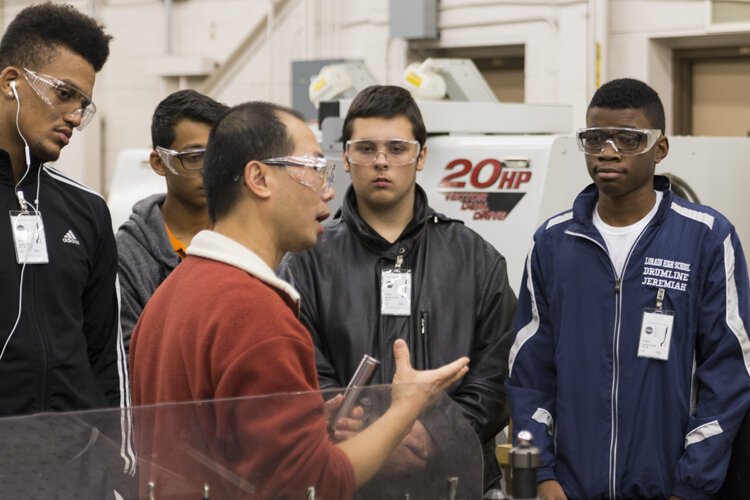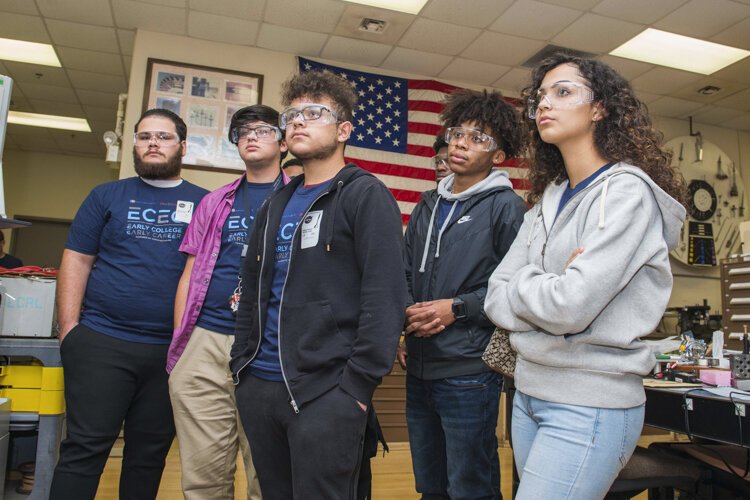Cleveland-born program solidifies connections between nationwide manufacturers
https://www.nist.gov/mephttps://www.nist.gov/mep
Manufacturing work is cloaked in myth, due to century-old images displaying dirty factories and dangerous equipment. Drawing new talent into a lucrative field means not only showing off clean and safe work floors, but also ensuring a sprawling network of industry organizations are all on the same page in relaying that message.
An effort originating in Cleveland is set to increase the efficiency of these many moving parts, aiming to create industry opportunities after a challenging year of forced shutdowns and declining production.
Cleveland’s Manufacturing Growth Advocacy Network (MAGNET) is developing the America Works program to improve all levels of the Manufacturing Extension Partnership (MEP), a group consisting of 51 organizations in all 50 states and Puerto Rico, with 1,400 professionals in 375 offices interacting with over 28,000 companies annually.
The three-year initiative, which MAGNET designed alongside MEP partners in Missouri, Iowa, Indiana, and New Jersey, will provide a centralized space for staff to improve communication and programming.
Primary goals include creation of a national database, identifying solutions to spur workforce development, and coordinating MEP centers countrywide. In year one, the effort will identify and launch specialized “nodes” focused on youth, adults, college students, and apprenticeships.
 Matt FieldmanA webinar series highlighting best practices in the MEP system is also slated for this year, says Matt Fieldman, executive director of America Works at MAGNET.
Matt FieldmanA webinar series highlighting best practices in the MEP system is also slated for this year, says Matt Fieldman, executive director of America Works at MAGNET.
On the ground level, America Works will create discussion groups around connecting underrepresented populations to potentially well-paid manufacturing careers. Ideally, people of color, the developmentally disabled, and those re-entering society from the criminal justice system will link to network affiliates in their state or region.
Fieldman says the multi-state, multi-disciplinary coalition aims to increase youth engagement in manufacturing, while also improving training for current workers on the plant floor. As the MEP system is hyper-local, America Works can respond to regional manufacturing strengths.
“Southwestern Ohio has aerospace, and northwestern Ohio has food production,” says Fieldman. “MEPs can focus on where those opportunities are to develop programs. America Works identifies best practices around the country and lifts them up.”
A way to get things done
America Works originated with Fieldman, whose career in the private sector and nonprofit space includes helping launch EDWINS Leadership & Restaurant Institute and the Cleveland Codes software development boot camp. Discussions at MEP conferences around workforce development planted the seed for the new program, he says.
“Whether in sessions or in the hallways, all anyone talked about was workforce,” Fieldman says. “How are you helping companies recruit and retain employees? What innovative approaches are working in your community? The buzz from manufacturers was about getting a higher quantity and quality of workers.”
The MAGNET team applied for, and received, a three-year, $1 million grant from the National Institute of Standards and Technology (NIST) at the U.S. Commerce Department, the national home of the MEP program.
Creating a modern talent pipeline means familiarizing both businesses and would-be workers with new automation trends— the Internet of Things (IoT), cloud computing, augmented reality, and more. A national database as proposed through America Works can elevate those discussions while uplifting efforts on the programmatic side.
“The goal is to create a one-stop shop of who’s doing what and where,” says Fieldman. “Like if an MEP wanted to do youth programming, it could go on this database and all the youth programs [across the country] would be there.”
 Small- and medium-sized manufacturers are critical to Ohio’s economy, representing 90% of employment growth for high-paying jobs, notes Mary Ann Pacelli, division chief of the NIST MEP based in Maryland.
Small- and medium-sized manufacturers are critical to Ohio’s economy, representing 90% of employment growth for high-paying jobs, notes Mary Ann Pacelli, division chief of the NIST MEP based in Maryland.
A former talent development official at MAGNET, Pacelli says businesses are searching for ways to navigate a pandemic-instigated downturn much as they overcame recessions and other economic speedbumps.
“As we work with manufacturers, we’re identifying what companies could be doing differently,” says Pacelli. “Then we help them find expertise, whether in technology, process improvement or workforce.”
Through America Works, Pacelli’s organization will assist in project management and in connecting MEP centers to one another. The program is timely for an industry in slow recovery and probing for a unified talent strategy.
“The word ‘workforce’ is coming out of every conversation with manufacturers,” Pacelli says. “It’s critical for these small businesses to have access to resources. I’m glad MAGNET is carrying the lead on the program.”
Fieldman of MAGNET says solidifying the MEP network will allow programming to continue organically, even at the end of the three-year grant.
“We’re building these connections so MEPs are better about sharing information and those connections become stronger,” he says. “There are best practices we can share from industry to industry. This isn’t a think tank, it’s a ‘roll-up-your-sleeves-and-get-things-done-tank.’”



